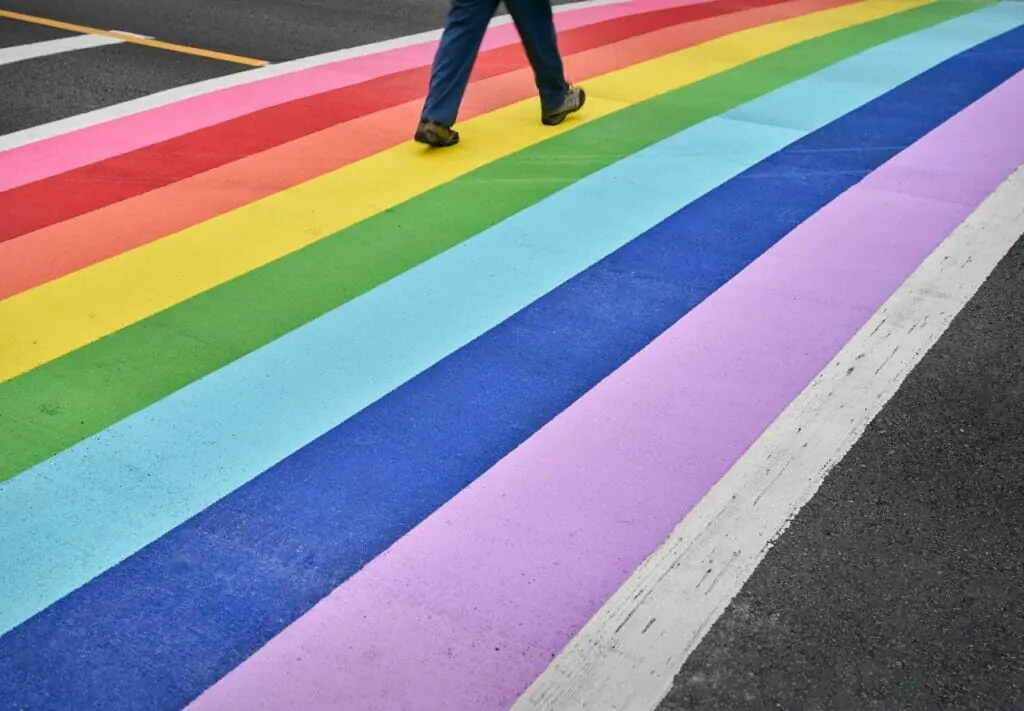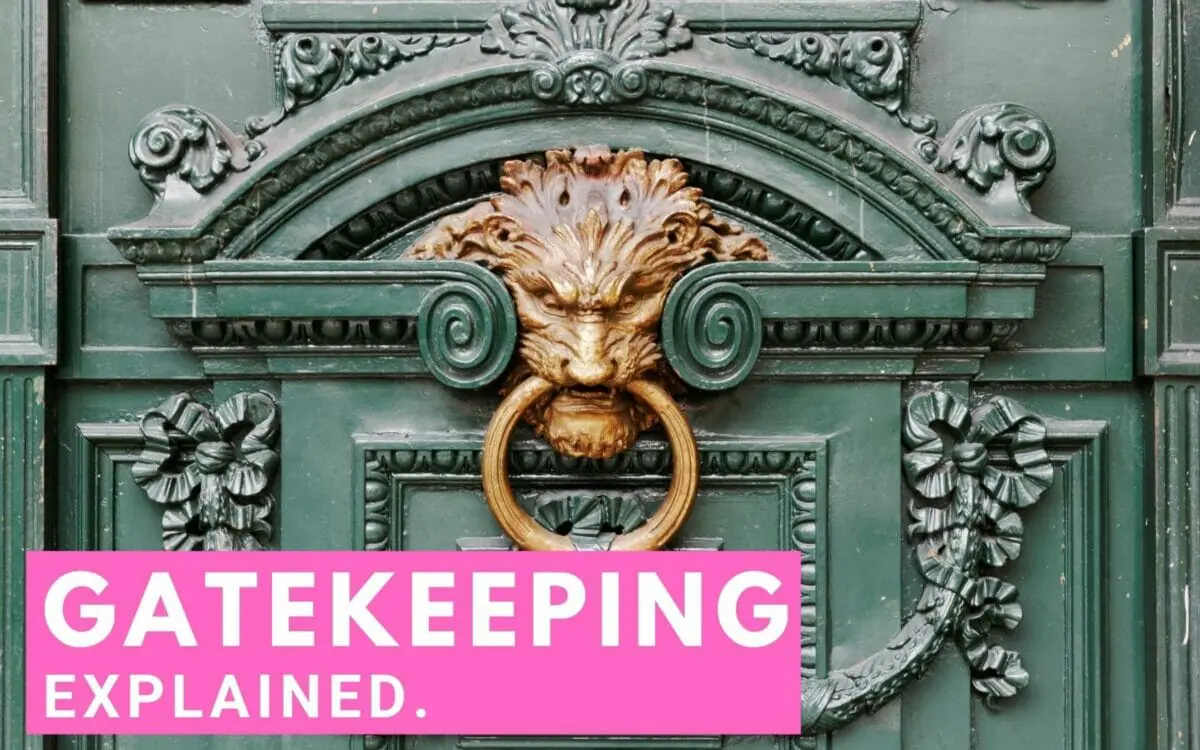Over the years, the queer community has seen an ever-growing lexicon of terminologies. For those not deeply immersed in LGBTQ+ culture or the rainbow community, keeping up with these evolving and lesser-known terms can be challenging. Understanding these terms is crucial for fostering inclusivity and respect within and outside the community.
One important term that has gained prominence is “gatekeeping.” In the context of the LGBTQ+ community, gatekeeping refers to the practice of dictating who does or does not have access or rights to a community or identity. This can manifest in various ways, such as questioning someone’s “queer enough” status or invalidating others’ experiences and identities. Gatekeeping is detrimental as it creates divisions within the community and undermines the principles of acceptance and diversity that the LGBTQ+ movement stands for.
To help avoid being a gatekeeper and to promote a more inclusive queer community, it’s essential to practice empathy and openness. Recognizing that every individual’s experience is valid and unique is a critical step. Encouraging open dialogues, listening to diverse voices within the community, and educating oneself about different identities and experiences can also help in reducing gatekeeping behaviors.
Another term gaining recognition is “Androromantic,” which adds to the rich tapestry of queer identities. The androromantic meaning refers to a romantic attraction towards men or masculinity, regardless of one’s own gender or sexual identity. This term helps individuals articulate their experiences more precisely and contributes to the broader understanding of the complex nature of romantic attractions and identities.
By embracing these terminologies and their meanings, we can work towards a more inclusive and understanding queer community. It’s about celebrating diversity, fostering empathy, and continuously learning to respect each individual’s unique journey and identity.
In this article we will cover...
What Does it Mean to be a Gatekeeper?
When someone decides who has access or rights to a group or identity, or disputes the legitimacy of an individual’s lived experiences, this is known as gatekeeping. It’s when someone tries to place restrictions on what it means to be a member of the LGBT+ community.
The language people use about particular groups, discriminatory rules, and people working to exclude others based on their own preconceptions and assumptions are all examples of gatekeeping. It can also be done for a variety of other reasons, such as unconscious or conscious assumptions and bias, a lack of understanding or knowledge, societal expectations, or even ignorance.
In practice, this can be divided into two types. To begin, “medical gatekeeping” refers to cisgender health professionals attempting to prevent transgender people from receiving gender-affirming resources like hormone replacement therapy (HRT). They do this by citing different excuses such as the person being too young, being mentally ill, claiming that an individual isn’t distressed or dysphoric enough, being nonbinary, or not having spent enough time since social transitioning.
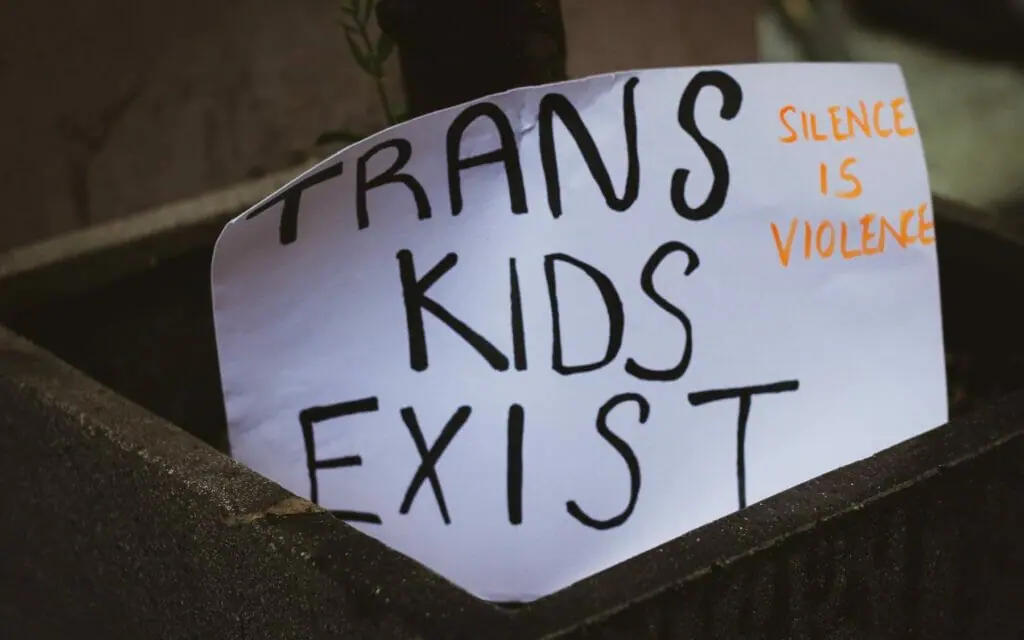
Second, “gatekeeping” occurs when certain members of a group or community regard others as “invalid” members and attempt to prevent them from entering the community and its spaces related to it. TERFs (trans exclusionary radical feminists a.k.a. transphobes), for example, may attempt to prevent trans women from accessing women’s spaces.
It’s nothing new for members of the LGBT+ community to act as gatekeepers. It’s been going on since Stonewall, and far, far before. There have always been those who believe they should be the ones to judge who is and isn’t a part of the queer community.
To be clear, we’re not referring to folks who don’t want the movement to be co-opted by straight, cisgender people. We’re not talking about catering to all those who say, “We should have a Straight Pride” (sigh).
We’re referring to people like macho gay males condemning gay men who wear drag, or otherwise express feminine characteristics, labeling them a disgrace or a stereotype, and condemning them for how they’re mistreated for failing to meet society’s masculinity norms.

We’re talking about feminine gay guys who ridicule “straight-passing” men referring to them as self-hating individuals that don’t belong to the community and don’t need the support of their peers. Gatekeeping refers also to lesbians in the habit of shaming each other for apparently being “basically straight”, or “too butch”.
While there are many forms of gatekeeping in the queer community, it isn’t possible to put them all here. However, one of the simplest descriptions of the term would be the ‘invalidation of someone’s experience of the LGBTQIA+ community by another community member.
Gatekeeping, extends beyond what other people believe of your identity and how you should define it. Gatekeeping can be used as a weapon to prevent particular members of the LGBTQ+ community from participating in Pride celebrations, which can lead to the suppression and erasure of specific identities, because many individuals use it to verify if others have the right to access a community. Things like bi-erasure are a real and persistent threat.
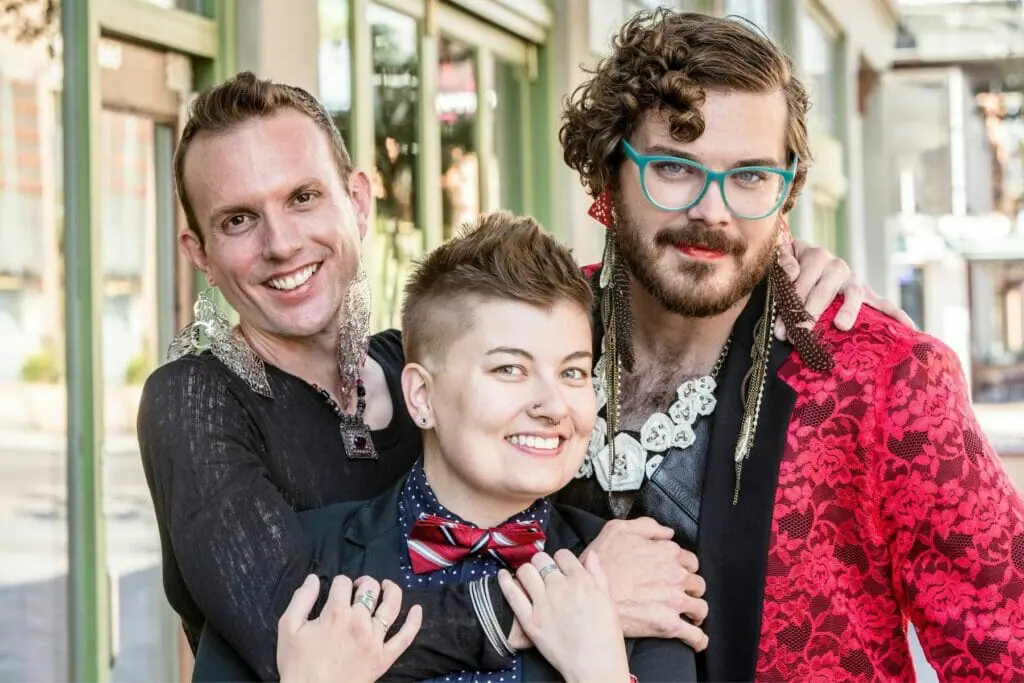
How to Avoid Being a Gatekeeper to Allow for a More Inclusive Queer Community
Let LGBTQIA+ people be
Remeber that even if the rainbow-wearing couple at the beer garden is in an opposite-sex relationship, one (or both) of them could be a member of the LGBTQ+ community.
People who are polyamorous, bisexual, pansexual, queer, omnisexual, sexually fluid, asexual, and aromantic exist and thrive in the same community, but their sexuality may not always be overtly obvious. It’s impossible to discern someone’s gender or sexuality just by looking at them. It doesn’t indicate they’re a straight couple just because they’re holding hands with someone that appears to you to be of the opposing gender.
Invading a person’s or a couple’s privacy to inquire about their sexuality, non-sexuality, gender, or any other part of their identity makes them feel insecure, vulnerable, and isolated. In any case, you aren’t an identity detective, either.
Challenging another person’s right to attend LGBTQIA+ events might make them feel insecure about their place in the group, or make them feel compelled to hide parts of their identity or the whole of it.

Don’t turn a deaf ear to other people in the community
Gatekeeping isn’t something that only pansexual, aromantic, bisexual, omnisexual, and asexual people have to deal with. Many lesbians also bear the burden of lesbian-phobic attacks on their identity, as well as explicit gatekeeping. Not only do these attacks put lesbians’ lives in jeopardy, but they also have the potential to spread throughout the community.
They perpetuate a toxic environment and promote negative preconceptions about other LGBTQ+ people. It can be easy to reject other people’s problems based on your identity within the LGBTQ+ community, but it’s critical to listen to others and actively educate yourself about the prejudice they suffer.
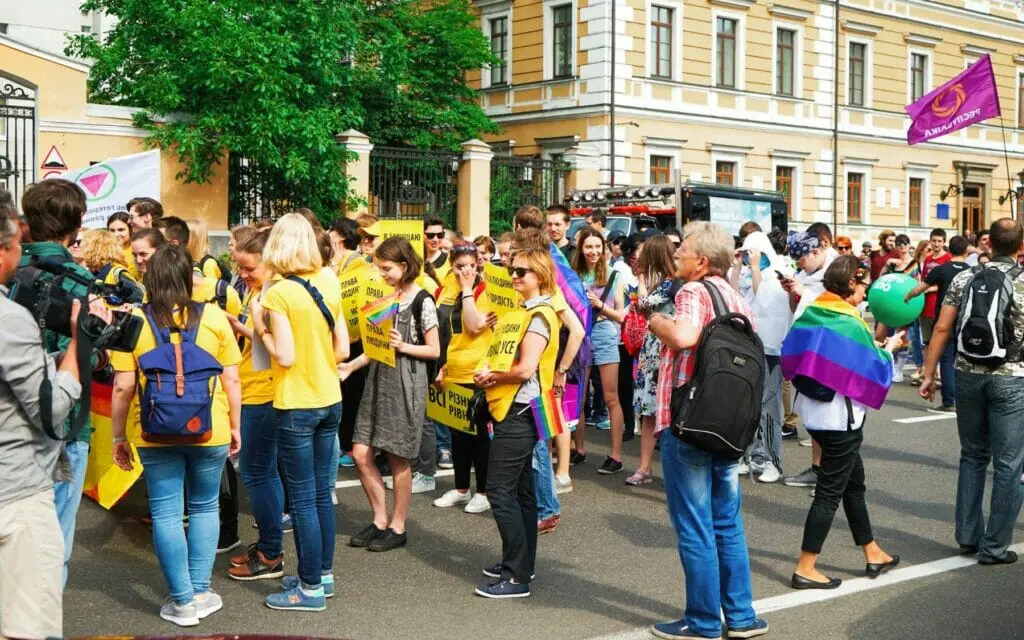
Rather than judge, accept
A community is made up of different people, and the LGBTQ+ community is made up of a diverse range of identities and individuals. Gatekeeping those whose identities aren’t apparently visible to everyone is bad for the entire community’s health. That said, not seeming queer or queer enough all of the time – or ever – shouldn’t put anyone at risk of gatekeeping.
And if you do mistakenly upset someone whether by gatekeeping or doing something that offends them, make sure you apologize and own up to your error. Keep things simple: listen, be accountable, and resolve to improve. That involves listening to the person you upset, and even if you didn’t mean to- admit you were wrong, and learn from your mistakes in order to improve in the future.
Members of the LGBTQ+ community are discriminated against in addition to being stigmatized, stereotyped by society, and fetishized by pop culture. Everybody in the LGBTQ+ community may utilize their voices, both actively and passively, to oppose the issues that all affect us all in different ways, then do better as we move into the future.
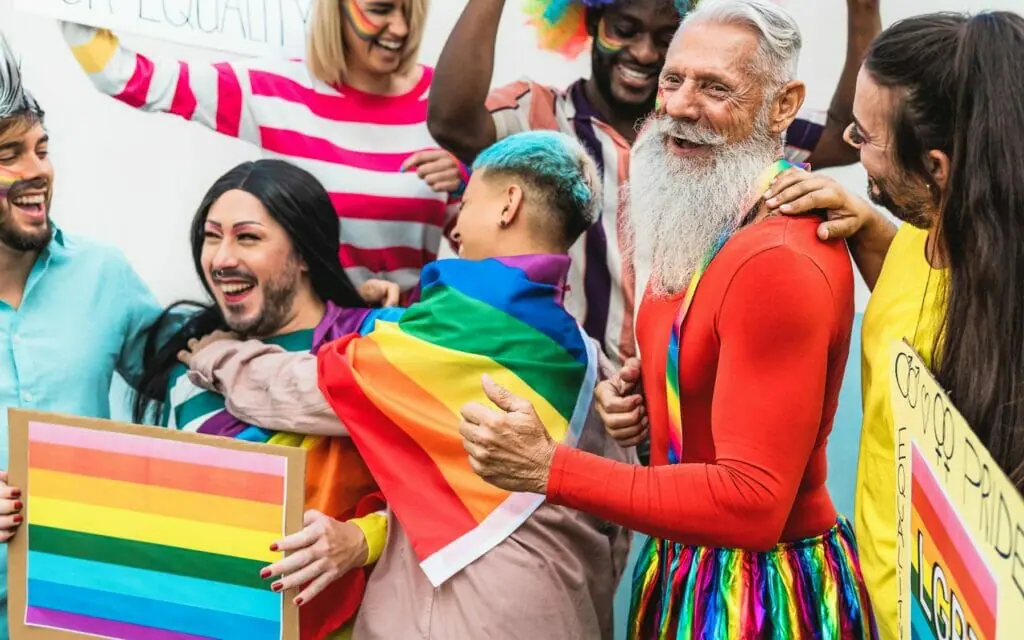
Final Thoughts on Gatekeeping
If you’ve been a gatekeeper, try not to be that person that invalidated on other people’s experiences based on only your knowledge or lack of it. Allow people to immerse fully in their experiences and live the life they want. It is better to support people rather than create a harmful environment for them.
